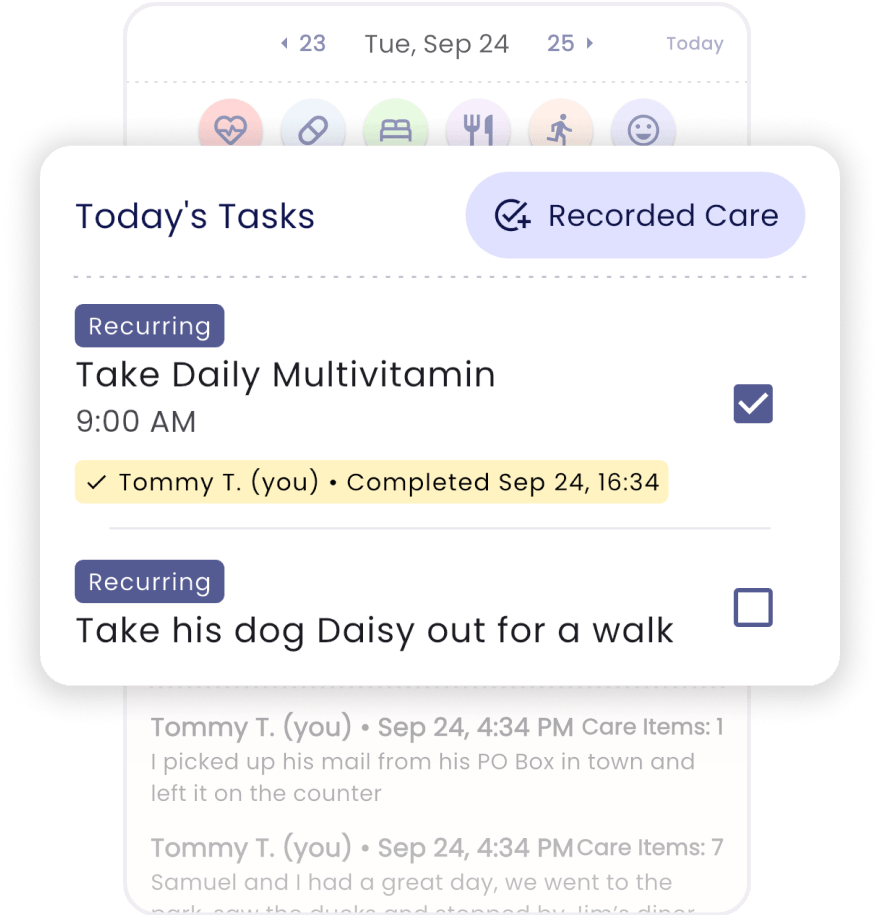The Importance of Accountability and Communication for Professional In-Home Caregivers of Dementia Patients

Caring for someone with dementia is a responsibility that requires a delicate balance of empathy, patience, and professionalism. For in-home caregivers, providing consistent and effective care involves not only tending to a patient’s physical and emotional needs but also maintaining open communication and accountability. These qualities are vital for ensuring the highest quality of life for dementia patients and fostering trust with their families.
This article explores why accountability and communication are essential in dementia care, shares a real-world example, and offers practical tips for caregivers to improve these critical aspects of their caregiving role.
Why Accountability and Communication Matter
Dementia patients often struggle with memory, comprehension, and communication, making it difficult for them to express their needs or concerns. For professional in-home caregivers, accountability ensures that care routines are followed consistently, while effective communication provides clarity, builds trust, and strengthens the caregiver-patient relationship.
Key benefits include:
1. Enhanced Patient Safety: Documenting care activities and communicating changes ensures that patients receive the right medications, meals, and therapies on time.
2. Family Reassurance: Families feel more at ease when they are kept informed about their loved one’s well-being and care plans.
3. Consistency in Care: A reliable caregiver promotes stability, which is especially important for dementia patients who thrive on routine.
4. Stronger Relationships: Open communication fosters a bond of trust and respect between caregivers, patients, and families.
The Impact of Accountability and Communication
Anna, a professional in-home caregiver for Mr. Reynolds, an 82-year-old man living with moderate-stage Alzheimer’s disease. When Anna started her role, she noticed Mr. Reynolds often resisted his daily hygiene routines and became anxious during mealtime.
By maintaining detailed notes about Mr. Reynolds’ preferences and behaviors, Anna discovered that he preferred morning baths to evening showers and felt calmer when familiar music played during meals. She communicated these observations to Mr. Reynolds’ family and collaborated with them to adjust his care routine.
Anna also kept an open line of communication through a shared caregiving app, where she logged her daily activities, including meals, medications, and any behavioral changes. This level of accountability reassured Mr. Reynolds’ family that he was receiving attentive, personalized care. Over time, Anna’s consistent approach and willingness to adapt helped reduce Mr. Reynolds’ anxiety and improve his overall quality of life.
5 Tips for Improving Accountability and Communication
Caregivers can implement the following strategies to enhance their accountability and communication skills:
1. Maintain Detailed Documentation
Create a daily care log to track activities such as meals, medications, therapies, and notable behavioral changes. This documentation ensures continuity of care and serves as a reference for future decisions. Tools like caregiving apps can simplify this process, providing a centralized platform for notes and updates.
2. Establish Open Lines of Communication
Regularly update the patient’s family about their loved one’s condition and any changes to the care plan. Use a method that works best for everyone, such as phone calls, emails, or shared digital platforms. Transparency helps build trust and keeps everyone informed.
3. Understand and Respect Preferences
Take the time to learn about the patient’s routines, likes, and dislikes. Incorporate these preferences into the care plan to make the patient feel comfortable and respected. Discuss these preferences with the family to ensure everyone is aligned.
4. Set Clear Expectations
Work with the family to establish clear roles and responsibilities for the caregiving team. This avoids miscommunication and ensures that everyone understands their part in the care process.
5. Embrace Feedback and Collaboration
Encourage feedback from the patient’s family and other caregivers. Actively listen to their suggestions and concerns, and work together to refine the care plan as needed. Collaboration fosters a team-oriented approach to caregiving.
Nanaroo Focus: Today's Tasks and Chat Features
The Bigger Picture
Accountability and communication are more than professional responsibilities—they are acts of compassion. When caregivers prioritize these values, they create an environment where dementia patients feel secure and supported, and families feel confident in the care provided.
By documenting activities, maintaining open communication, and fostering collaboration, professional caregivers can significantly improve the quality of life for dementia patients. And in doing so, they honor the trust placed in them by families navigating the complex journey of dementia care.
Final Thoughts
For professional in-home caregivers, accountability and communication are not optional—they are fundamental to effective dementia care. Whether you’re using tools like caregiving apps or relying on regular family meetings, taking the time to document, share, and adapt can transform the caregiving experience for everyone involved.
As Anna’s story illustrates, the effort to prioritize these qualities is always worth it. In every note logged, conversation shared, and routine adjusted lies the opportunity to make a meaningful difference in the life of a patient and their loved ones.
By implementing these tips, caregivers can ensure they provide the compassionate, organized, and transparent care that every dementia patient deserves.


